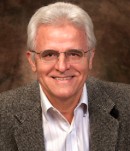
Plenary Lecture
Energy and Environmental Landscape: The Laws of Thermodynamics and Nature

Professor M. Kostic
Department of Mechanical Engineering
Northern Illinois University
USA
E-mail: kostic@niu.edu
Abstract: Energy and Environmental landscape could be substantially enhanced with improved efficiency and diversification of energy sources, devices and processes. The fundamental Laws of Thermodynamics and comprehensive analysis and optimization are the most effective ways for the improvements and could lead to innovative development.The fundamental Laws of Nature are exceptionally simple but they appear in exceptionally many different forms, which explain universality and unity of simplicity and complexity, but also difficulties to recognize simplicity in complex diversity.
The philosophic axiom "causa aequat effectum" [the cause is adequate to the effect] traced to ancient philosophers, represents the most universal and fundamental law of nature, including existence and future, i.e. past and future transformations. Furthermore, the phenomenological Laws of Thermodynamics have much wider, including philosophical significance and implication, than their simple expressions based on the experimental observations – they are the Fundamental Laws of Nature. They are defining and unifying our comprehension of all existence in universe (all natural and man-made systems defined by their properties and processes) and all changes in time (all processes, including life), which are in turn caused by mass-energy transfer, from one system or subsystem to another, due to non-uniform mass-energy distribution in space and time.
Therefore, advances in energy conversion and utilization technologies and increase in efficiency, including computerized control and management, contribute to energy efficiency and conservation, increase in safety, and reduction of related environmental pollution. Actually, per capita energy use in the U.S. and other developed countries is being reduced in recent years. However, the increase of World’s population and development of many underdeveloped and fast developing and very populated countries, like China, India and others, will influence continuous increase of the World energy consumption and related impact on the environment. After all, in the wake of a short history of fossil fuels’ abundance and use (a blip on a human history radar screen), the life may be happier after the fossil fuel era!
Brief Biography of the Speaker: Milivoje M. Kostic, Ph.D., P.Eng., Professor of Mechanical Engineering at Northern Illinois University, is a notable researcher and scholar in energy fundamentals and applications, including nanotechnology, with emphasis on conservation, environment and sustainability. He graduated with the University of Belgrade highest distinction (the highest GPA in ME program history), obtained Ph.D. at University of Illinois at Chicago as a Fulbright scholar, appointed as NASA faculty fellow, and Fermi and Argonne National Laboratories faculty researcher. Professor Kostic also worked in industry and has authored a number of patents and professional publications, including invited articles in prestigious energy encyclopedias. He has a number of professional awards and recognitions, is a frequent plenary speaker at international conferences and at different educational and public institutions, as well as member of several professional societies and scientific advisory boards. More at www.kostic.niu.edu.